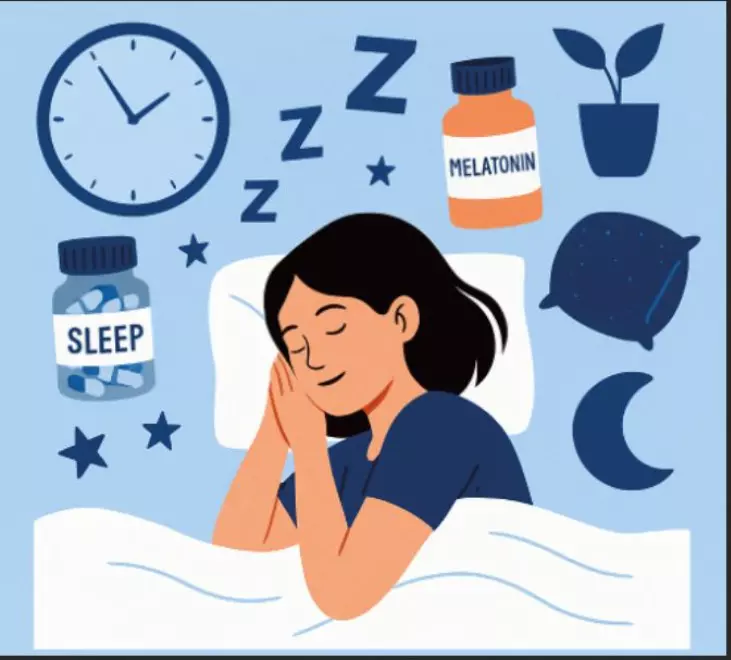Snooze To Not lose
Sleep is a biological necessity; and the growing issue of sleeplessness has opened up a huge market of possibilities in India

Blissful sleep is a blessing. I remember my late father hitting the sack and dozing off in under 5 seconds. While, by comparison, my mother has perennially suffered from insomnia. Some folks can float off to la-la land anywhere, while others need the meticulously prepared circumstances for their slumber. Sleep is such an essential part of our being, and yet scores of people struggle with it every day — either from a lack of discipline or the inability to derive enough of it. Much of our bodily functions and long-term health is intrinsically dependent on sleep. It’s the time for our body and mind to rest, relax, and rejuvenate. Cells heal, the immune system gets fortified, hormones are controlled, the heart and brain perform better, and the entire body performs optimally. Extreme high achievers have famously stated that they routinely function on four hours of sleep. Not me though. If I don’t get a minimum of 7-8 hours of sleep, I’m grouchy the next day. Several studies and health and wellness experts opine the same. Sleep will play a monumental role towards a long, healthy, and active life. And yet that simple task of drifting into our dreams is no child’s play, emerging as a challenge for the vast majority of working India.
Nearly half the Indian population is currently battling some form of insomnia or sleep-related issues, with almost 60 per cent of us operating on less than six hours of sleep a day, making India the second-most sleep-deprived country in the world; Japan being the first. As per a study by ResMed, 49 per cent of the respondents complained of difficulty in falling asleep at least thrice a week. The study was conducted last year across 13 countries, including India, the United States, China, the United Kingdom, Germany, France, Australia, Japan, South Korea, Thailand, New Zealand, Singapore, and Hong Kong. Globally, too, people are losing almost three nights of regenerative sleep every week. Though more people are aware of the detrimental effects of poor sleeping habits, they continue to grapple with sleeplessness. One in four individuals accepted that while they faced issues, they had not found a way to resolve it. In India, the salaried class seems quite affected, with 47 per cent of employed respondents availing sick leave at least once due to sleep deprivation. 80 per cent of Indian respondents felt that their employers gave importance to sleep as compared to 47 per cent globally. As in all other things, in matters of forty winks, women are staying awake more. Hormonal changes are one of the biggest contributors to sleep disruption in women, who generally sleep less peacefully than men.
Every crisis brings with it an opportunity, and so too has forced wakefulness. The purported market size of the sleep industry is between Rs 12,000 crore and Rs 14,000 crore for mattresses and over USD 300 million for sleep aids. Sleep apnea, which heightens the risk of heart disease, stroke, and diabetes, and currently affects over 100 million Indians (of whom only 10 per cent have been diagnosed), is a burgeoning market. The sleep apnea device market is slated to grow from USD 248 million in 2023 to USD 905 million by 2035. A cursory look at the market shows its growing potential. From memory foam mattresses and pillows, to sleep aids and supplements — companies have risen to the occasion to make Indians sleep faster and better. Several startups are leading the charge, prompting old war horses to also amend their product strategies. Intelligent mattresses are now on offer, created with sustainable materials, while special pillows can ease pain in the neck, back, or other regions. Scandinavian furniture maker Ikea’s ‘Global Sleep’ report, which surveyed over 55,000 people across 57 nations, threw up some interesting facts about the Indian consumer — an increasing number of Indians are taking their bedrooms very seriously. Over 23 per cent have shown a penchant for special mattresses and pillows, while 16 per cent use blackout curtains to darken the room and coax the advent of sleep. Our parents’ generation may have relied on spring mattresses, but we have jumped onto comfier things. And anyone who has tried a cooling memory foam mattress or weighted blankets proffer just the right amount of cosy pressure, have quickly turned believers. More people are ready to spend a pretty penny if an ergonomic mattress can alleviate body pain.
And where the bed doesn’t cut it, sleep supplements are the current rage. From melatonin gummies and mouth tapes to hemp oil and herbal teas for a deeper nap — there’s something for everyone. As per an AGR Knowledge Services report, the search for sleep gummies is increasing at a whopping 650 per cent. Tracking sleep patterns through wearable bands and rings, sleep apps, and even smart mattress covers can provide insights into one’s health, including stages of sleep, REM (rapid eye movement) stage, heart rate, breathing, snoring, and movements. A plethora of options are at your fingertips. We will do well to remember that sleep deprivation is an age-old torture technique and that it’s beneficial to nod off.
Views expressed are personal. The writer is an author and media entrepreneur



